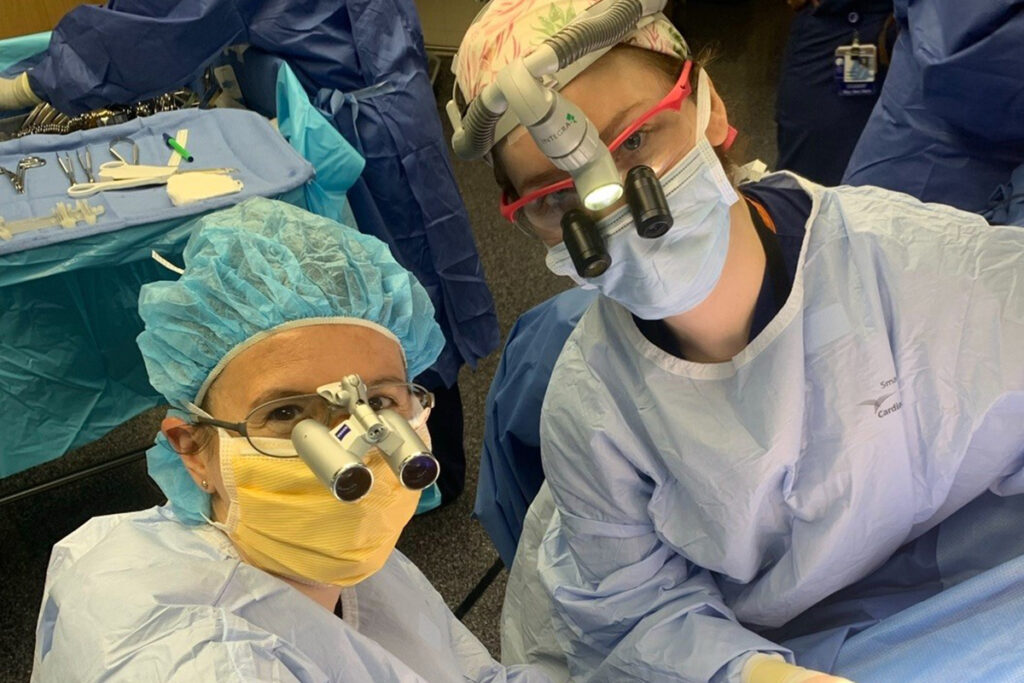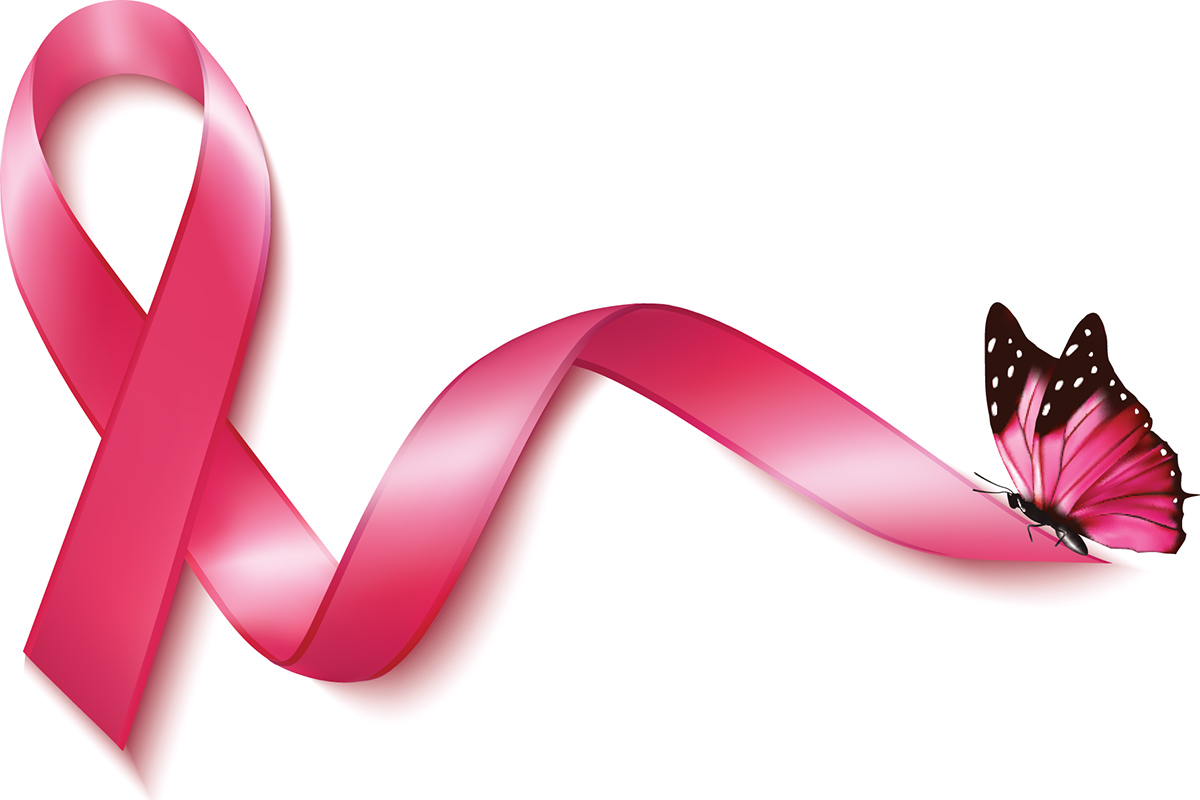
Threads of Strength and a Message of Hope
By Michelle Vasquez | Photography by Suzanne Pack
Cancer is never just a medical diagnosis. It is a story that reshapes lives, challenges identities, and tests the boundaries of courage. For three Texas women, Julie Hudson, Terry Weilbacher, and Brenda Nelson, the journeys have been different, but their message is the same: early detection saves lives, support sustains the fight, and hope is always worth holding onto.
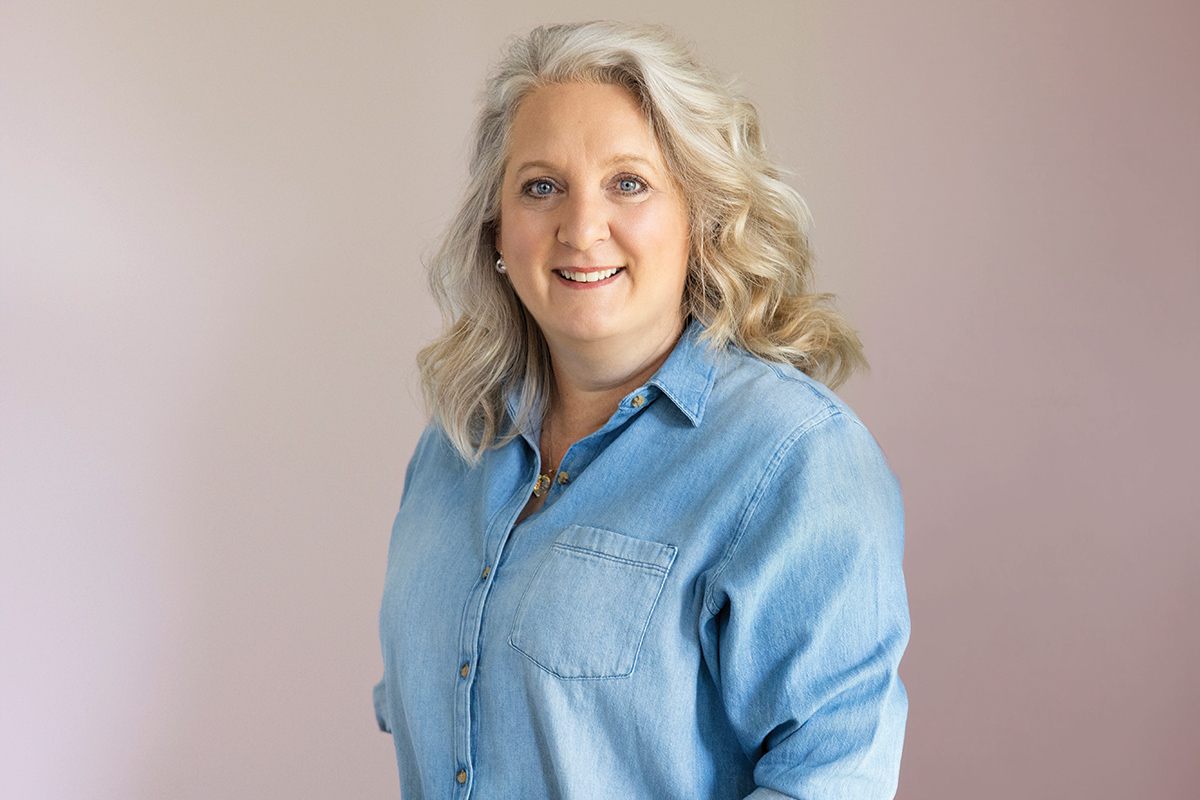
Julie Hudson
Turning Early Detection into Advocacy
Julie Hudson was 40, working as a neonatal ICU nurse, when a routine mammogram changed everything. “I wasn’t looking for anything, didn’t feel anything, it was just a crazy find.” With a family history of cancer, she underwent genetic testing, which came back negative. Even so, her diagnosis was caught early and contained.
The moment she learned the news still feels surreal. “It’s kind of like in the movies where you have that foggy filter. I was supposed to be there for follow-up images, and suddenly I’m being told I need a biopsy.” She credits her patient navigator for making the overwhelming process manageable: “Get someplace with a good cancer center and a navigator. It makes all the difference,” Hudson advises.
Hudson opted for a bilateral mastectomy and natural tissue reconstruction, avoiding chemo and radiation. Throughout her journey, she began blogging at bosomthing.blogspot.com, sharing honest details and photos. “If I could help one person, it was worth sharing,” she confides. Her openness connected her with women around the world, fellow patients in San Antonio, and survivors she now calls friends.
Her advocacy expanded through patient programs, breast cancer support groups, and eventually Ranch Chic, an American Cancer Society fundraiser. Initially invited to join the planning committee, she is now the show’s model coordinator, or “model wrangler,” as she calls it, managing 60 to 70 cancer survivor and fighter models each year.
“It’s a night of hope,” Hudson says. “Families cheer, kids feel like kings and queens, survivors walk the runway smiling. There’s not a dry eye in the room.”
Her message is clear: “Early detection saves lives. That’s not just a slogan; it saved mine. Get your mammogram, your colonoscopy, your screenings. Cancer doesn’t discriminate, but we can fight back by catching it early.”
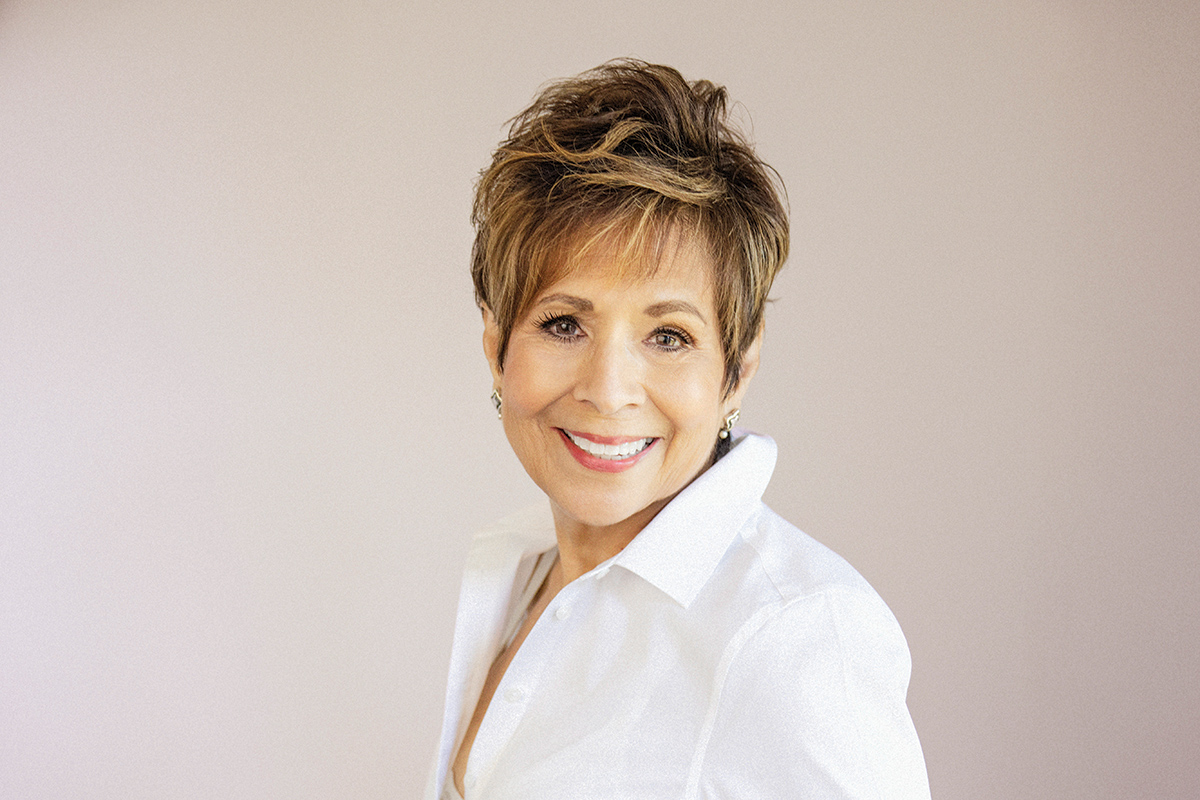
Terry Weilbacher
From a Full Life to a Fight for It
Before cancer, Terry Weilbacher’s life was full and accomplished. Married nearly 56 years, she raised three sons while balancing a variety of careers, including pharmaceutical representative, exercise instructor, and Southwestern Bell employee, along with years as a dedicated stay-at-home mom. “I’ve had quite a few different hats, and when my boys started going to college, I went back to work,” she says.
In 2007, during a routine mammogram, everything changed. “I was very faithful about doing my breast exams every month and having my mammograms every year. That’s how they found it,” she recalls. The diagnosis left her challenged but determined.
Chemo was brutal. “The first ten days, I had constant nausea and weakness.” Friends brought meals, sent cards, and filled the waiting room during her surgeries. The outpouring of caring and love was without precedent, and she was in awe to see them support her. Her husband was lovingly supportive, taking on the roles of caretaker and medication manager. “My husband has been an A+ and treated me with tenderness, love, and care. I want people to understand how important that is to coping,” she reflects.
Fifteen years later, cancer returned in the other breast. Genetic testing revealed she was BRCA2 positive. She underwent a mastectomy and reconstruction, but did not require chemotherapy.
Through it all, Weilbacher has found joy and purpose with Ranch Chic, an American Cancer Society fundraiser she has served on for a decade. “Being with fellow survivors, giving each other a high five and saying, hey, we’re still here, means the world,” she says.
Her advice is unwavering: “You have to keep your spirits up. Don’t let cancer be the boss of you. You are in control.” Whether enjoying time with friends or undergoing treatment, family and friends anchor her journey.
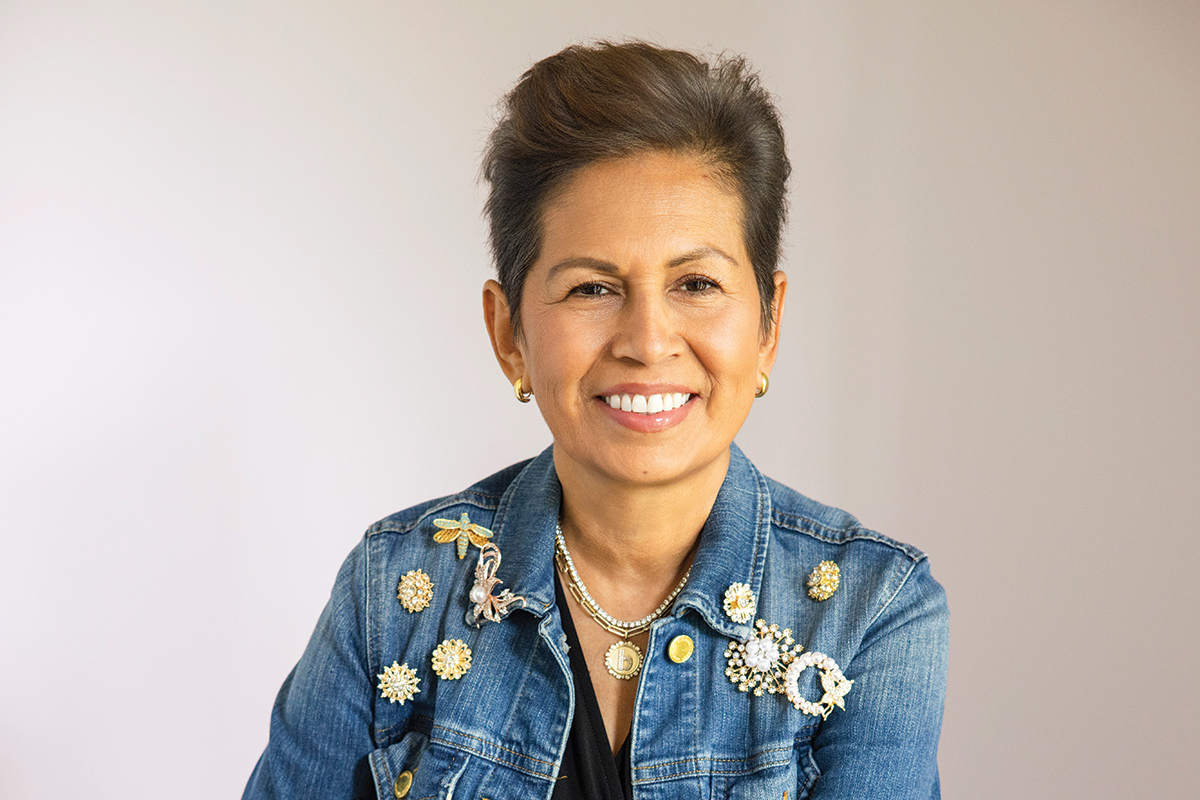
Brenda Nelson
Faith, Resilience, and Hope
Brenda Nelson, a registered nurse and mother of three, had been diligent about her health for more than 15 years, undergoing yearly diagnostic mammograms due to dense breast tissue.
In 2022, Nelson’s husband was offered a job with H-E-B, taking them from the Midwest back to Texas. The occasion was a happy one. She celebrated her 50th birthday and saw her daughter get married. Soon after, Nelson woke with chest pain and indigestion. Concerned about her heart, she went to the emergency room (ER). The EKG was clear, but a CT scan revealed her liver was “covered in nodules.” Further testing at MD Anderson brought unexpected news: metastatic breast cancer, stage 4, originating in her right breast and spreading to her liver.
“I didn’t know what was going on, but I knew the One who did, and I would put my trust in Him,” Nelson recalls. Her faith has carried her through aggressive treatment, beginning with chemo. The side effects were grueling, including weight loss, painful mouth sores, and near-constant fatigue, but she continues her immunotherapy every 21 days.
Metastatic breast cancer has no cure, but Nelson lives with determination and gratitude. “My oncologist once said, ‘Brenda, this is a marathon, not a sprint.’ He was right.” Even after the cancer spread to her brain, requiring 10 rounds of whole-brain radiation, she has focused on regaining her strength and balance.
Her message is unwavering: be your own advocate. “If you don’t feel good, there’s a reason. Don’t let anyone dismiss your symptoms.” “I feel the peace that surpasses all understanding,” she says. She credits Jesus, her husband who has never missed an appointment, prayer warriors, and her oncology team for cultivating her convictions to live each day with her whole heart.
Hudson, Weilbacher, and Nelson each faced their own challenges, yet share a common message: pay attention to your health, get your screenings, and lean on the people who care about you. Their experiences show that early detection, steady support, and a hopeful outlook can make a difficult journey a little easier to navigate.
Hudson, Weilbacher, and Nelson each faced their own challenges, yet share a common message: pay attention to your health, get your screenings, and lean on the people who care about you. Their experiences show that early detection, steady support, and a hopeful outlook can make a difficult journey a little easier to navigate.


